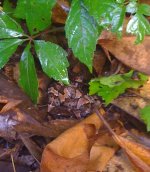-
Hello!
Either you have not registered on this site yet, or you are registered but have not logged in. In either case, you will not be able to use the full functionality of this site until you have registered, and then logged in after your registration has been approved.
Registration is FREE, so please register so you can participate instead of remaining a lurker....
Please be certain that the location field is correctly filled out when you register. All registrations that appear to be bogus will be rejected. Which means that if your location field does NOT match the actual location of your registration IP address, then your registration will be rejected.
Sorry about the strictness of this requirement, but it is necessary to block spammers and scammers at the door as much as possible.
You are using an out of date browser. It may not display this or other websites correctly.
You should upgrade or use an alternative browser.
You should upgrade or use an alternative browser.
Opinions on this snake?
- Thread starter Memphios
- Start date
Critter1398
New member
That's definitely a cottonmouth.
Theo's Keeper
New member
Every cottonmouth I've seen has been dark brown or almost black, with rattlesnake-like markings if any, but I'll admit I've never seen a juvenile, which this appears to be. I would say copperhead but I couldn't be sure. I do know for a fact that he's hiding under Virginia Creeper 
ziggybond_007
Team Laura
That looks like a copperhead. Northern copperhead, I think, because it looks dark.
ziggybond_007
Team Laura
Actually, you're right, it's a juvenile cottonmouth. Rofl, I just had a conversation talking about how juvies in cottonmouths look like copperheads... Anyway, here's a photo.
http://www.kyherpsoc.org/kyappreciation/swamp/cotbabies03.jpg
http://www.kyherpsoc.org/kyappreciation/swamp/cotbabies03.jpg
WingedSweetheart
New member
Aren't cottonmouths water moccasins?
reptile65
Future DVM
Aren't cottonmouths water moccasins?
The term "water moccasin" refers to many different types of snakes. It basically means a snake that swims.
WingedSweetheart
New member
Well around here Water Moccasins are a type of stake aka Cottonmouths. They are rarely found in WV because it's too cold here but my parents are always freaking every time we have a brown water snake in our pond.
wstphal
working in the Gulag
What I was told in FL as a kid was that "water moccasins" were cottonmouths, because they like wet or swampy environments & liked to swim, as opposed to copperheads, which were likely to be found (according to what I was told) in less swampy or more upland settings. I am not saying any of this is actually correct. Jeff can probably tell us. But that is what I was taught. As for Mucinous's dad's picture, I would have guessed EITHER juvie cottonmouth or copperhead.
WingedSweetheart
New member
I think it looks more like a cottonmouth. I dunno about other places but it's head looks a lot different from the heads of the copperheads around here. Looks too dark. 
Cflaguy
Old School Snakeman
When I was coming up in the ranks in Florida.....
Water Moccasins did indeed mean water snakes. Then you went to individual designations like Cottonmouth, Banded Water, Brown Water, Green Water etc.
Many a time I would get a call to come get a moccasin, assuming I was getting a venomous snake. Only to find a Banded Water.
Copperheads and Cottonmouths are closely related, in some areas of the country Copperheads are known as "Upland" Moccasins. And you don't always find Cottonmouths to be exclusive to water.
Aren't cottonmouths water moccasins?
The term "water moccasin" refers to many different types of snakes. It basically means a snake that swims.
What I was told in FL as a kid was that "water moccasins" were cottonmouths, because they like wet or swampy environments & liked to swim, as opposed to copperheads, which were likely to be found (according to what I was told) in less swampy or more upland settings. I am not saying any of this is actually correct. Jeff can probably tell us. But that is what I was taught. As for Mucinous's dad's picture, I would have guessed EITHER juvie cottonmouth or copperhead.
Water Moccasins did indeed mean water snakes. Then you went to individual designations like Cottonmouth, Banded Water, Brown Water, Green Water etc.
Many a time I would get a call to come get a moccasin, assuming I was getting a venomous snake. Only to find a Banded Water.
Copperheads and Cottonmouths are closely related, in some areas of the country Copperheads are known as "Upland" Moccasins. And you don't always find Cottonmouths to be exclusive to water.
wstphal
working in the Gulag
Water Moccasins did indeed mean water snakes. Then you went to individual designations like Cottonmouth, Banded Water, Brown Water, Green Water etc.
Many a time I would get a call to come get a moccasin, assuming I was getting a venomous snake. Only to find a Banded Water.
Copperheads and Cottonmouths are closely related, in some areas of the country Copperheads are known as "Upland" Moccasins. And you don't always find Cottonmouths to be exclusive to water.
Oh. My dad called only the venomous ones water moccasins. Never heard of the other water snakes being called moccasins. And he also said that copperheads & cottonmouths were very closely related, it was mostly environmental preferences & coloring that separated them.

